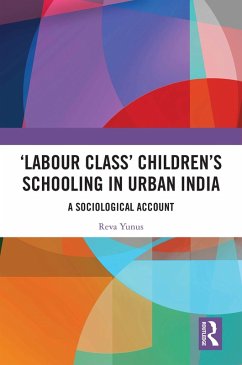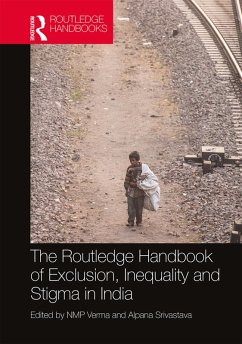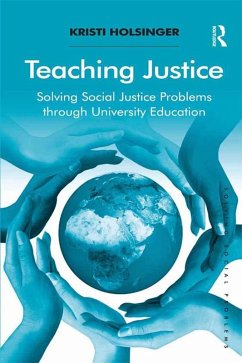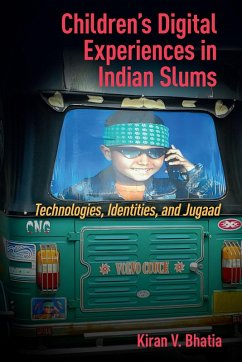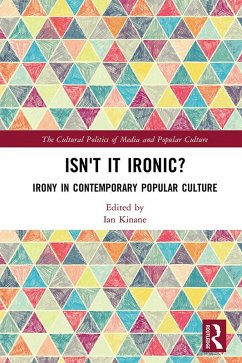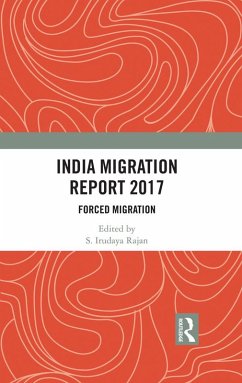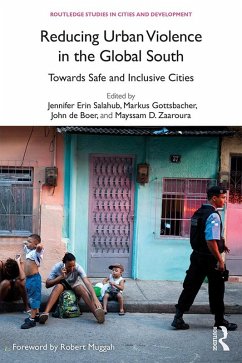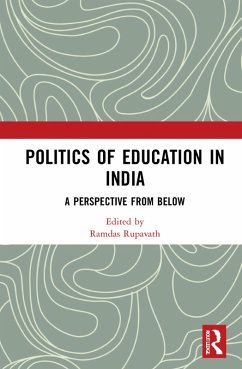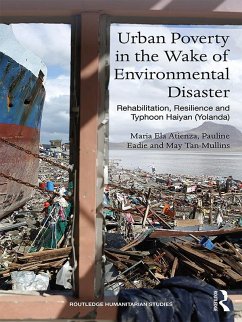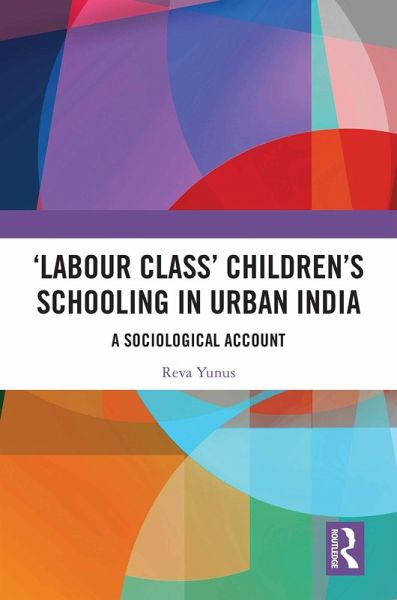
'Labour Class' Children's Schooling in Urban India (eBook, ePUB)
A Sociological Account
Versandkostenfrei!
Sofort per Download lieferbar
39,95 €
inkl. MwSt.
Weitere Ausgaben:

PAYBACK Punkte
20 °P sammeln!
Drawing upon classroom ethnography and interviews with parents and pupils in urban central India, this book offers systematic sociological analyses of childhood, labour and schooling in postcolonial, post-liberalisation India. It combines insights from economic sociology, political economy and feminist critiques of capitalism, caste patriarchy and globalisation to theorise the relationship between educational experience and socioeconomic inequalities. It unpacks poverty as a structural condition shaped by class and caste relations, thus offering a vital intervention in dominant development dis...
Drawing upon classroom ethnography and interviews with parents and pupils in urban central India, this book offers systematic sociological analyses of childhood, labour and schooling in postcolonial, post-liberalisation India. It combines insights from economic sociology, political economy and feminist critiques of capitalism, caste patriarchy and globalisation to theorise the relationship between educational experience and socioeconomic inequalities. It unpacks poverty as a structural condition shaped by class and caste relations, thus offering a vital intervention in dominant development discourses centring on the relationship between poverty and poor children's schooling in the global South. Unravelling the interplay of poverty, caste patriarchy and shifts in the gendered division of reproductive labour, it challenges both the 'girl effect' narrative as well as the 'school/labour' binary. It offers insights into 'labour class' families' experience of urban informal work, enabling a critical account of the gendered place of school in children's lives and rendering visible poor parents' and pupils' efforts to ensure educational success. Thick descriptions of pedagogic and disciplinary processes and social relations in the classroom allow it to grapple with teachers' 'deficit view' of the labour class as well as the impact of stratified schooling on teachers' working conditions and teacher-pupil relations. The book presents a rare account of teenaged children's gendered modes of negotiation of social relations at school and home, waged and unwaged work, economic and educational deprivation and pedagogic practices in the classroom. It will appeal to scholars interested in the sociology of education and childhood, gender and caste inequalities, international development, poverty and urban informal work.
Dieser Download kann aus rechtlichen Gründen nur mit Rechnungsadresse in A, B, BG, CY, CZ, D, DK, EW, E, FIN, F, GR, HR, H, IRL, I, LT, L, LR, M, NL, PL, P, R, S, SLO, SK ausgeliefert werden.




